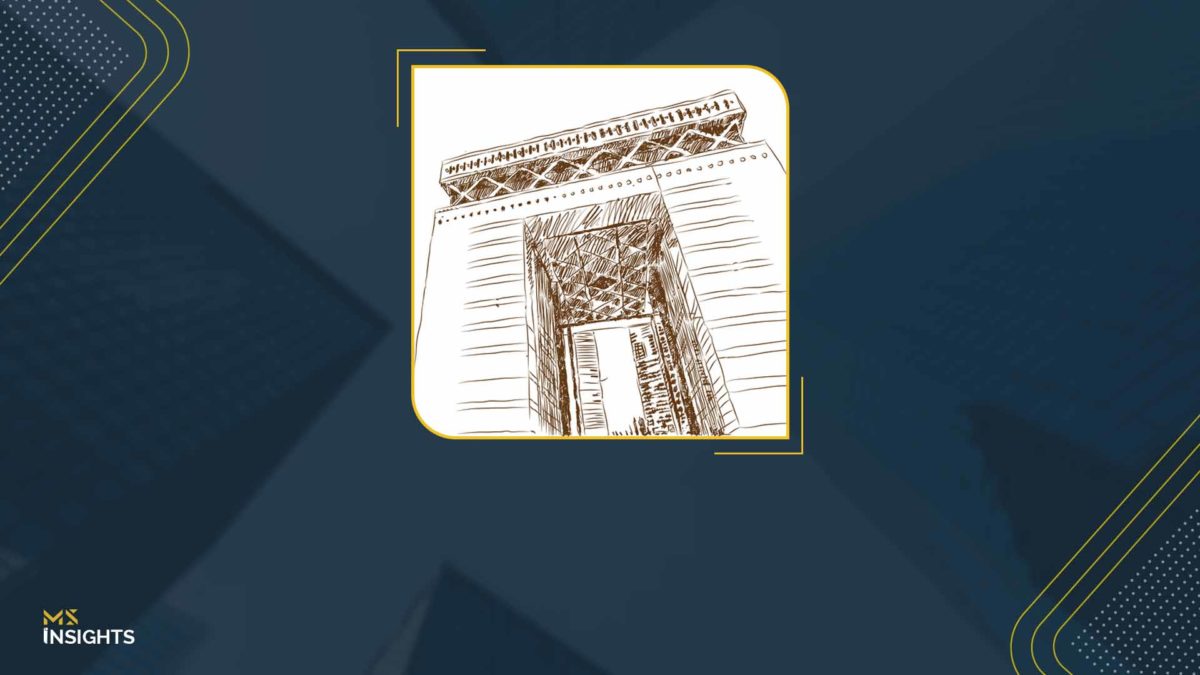As global business practices evolve, so do expectations around employee benefits and financial security. In line with its commitment to innovation and world-class governance, the Dubai International Financial Centre (DIFC) introduced the DIFC Employee Workplace Savings (DEWS) Plan – a first-of-its-kind initiative in the region that transforms how end-of-service benefits are structured and managed.
Replacing the legacy gratuity model with a modern, funded, and professionally managed savings plan, DEWS offers a secure, transparent, and globally aligned alternative for both employers and employees. It’s a structural evolution designed to enhance financial predictability, boost employee engagement, and reinforce DIFC’s position as a leading international financial hub.
This article explores the key benefits of DIFC DEWS, outlining how it improves financial outcomes, aligns with global best practices, and su0pports a more resilient and future-ready workforce in the DIFC.
A Paradigm Shift from Gratuity to Workplace Savings
The traditional end-of-service gratuity model, long used across the region, operated as a post-employment benefit accrued by the employer over time. While it served its purpose in the past, the approach typically involved keeping the liability on the company’s books without dedicated, real-time funding. As businesses and workforces became more dynamic and globally integrated, this model began to pose challenges in terms of cash flow planning, risk management, and long-term financial predictability especially during times of economic volatility or organizational change.
In response to these challenges, the DIFC introduced the DEWS regime – a funded defined contribution plan. Among the many benefits of DIFC DEWS is the shift from employer-held liabilities to monthly contributions into an independent trust managed by a regulated third-party administrator. This structure offers greater protection, improves financial governance, and enhances long-term retirement security for employees.
Benefits of DIFC DEWS for Employers
1. Reduced Financial Risk
DEWS shifts the liability from being an unfunded balance sheet risk to a monthly-funded obligation. This not only mitigates financial unpredictability but also ensures that employee entitlements are protected regardless of the company’s future performance.
2. Cash Flow Clarity and Predictability
Employers make a fixed monthly contribution depending on the length of service. This improves budgeting accuracy and removes the shock of large gratuity payouts upon employee exit.
3. Outsourced Administration
The scheme is managed by professional trustees and administrators. This means companies no longer have to worry about managing complex internal gratuity tracking systems or regulatory updates on their own.
4. Improved Employer Branding
Offering a globally-aligned savings plan positions companies as forward-thinking and employee-centric. DEWS has become an essential component of an attractive HR package, especially for multinational talent familiar with retirement benefits in developed markets.
Benefits of DIFC DEWS for Employees
1. Security and Ownership
Unlike the old gratuity system, where employees had to wait until termination to access benefits, DEWS gives employees ownership from day one. Contributions are made monthly into their personal DEWS account and held in trust, legally separate from their employer’s assets.
2. Portability Within DIFC
If employees move between DIFC employers, their DEWS savings move with them, ensuring continuity in retirement planning and reducing the hassle of lump-sum transitions or lost benefits.
3. Investment Control and Growth
Employees can choose from a range of professionally managed investment options, tailored to different risk appetites. Whether they prefer low-risk capital preservation or more aggressive growth funds, DEWS gives them flexibility. Among the key benefits of DIFC DEWS is this investment choice empowering employees to align their retirement savings with their personal financial goals and risk tolerance.
4. Voluntary Contributions
Beyond mandatory employer contributions, employees can top up their savings voluntarily, allowing them to build a stronger financial foundation for retirement or long-term goals. This cultivates a culture of proactive financial planning.
5. Transparent, Digital Access
With a user-friendly online dashboard, employees can track contributions, investment returns, and account balances in real-time bringing transparency and engagement into their savings journey.
Broader Economic and Governance Benefits of DIFC DEWS
- Aligning with Global Best Practices
DEWS reflects a growing trend in global financial hubs moving away from end-of-service gratuities towards defined contribution retirement-style systems. The benefits of DIFC DEWS extend beyond compliance as they strengthen DIFC’s position as a forward-looking jurisdiction focused on regulatory innovation and employee welfare.
- Promoting Financial Wellness
By encouraging long-term savings and empowering employees with investment tools, DEWS supports the financial resilience of the workforce. This, in turn, leads to improved employee morale, retention, and productivity.
- Strengthening Regulatory Oversight
DEWS is governed by an independent master trust structure, offering robust fiduciary oversight and regulatory compliance. This ensures all contributions are protected, invested responsibly, and transparently reported.
How MS Can Help?
At MS, we simplify your transition to the DEWS Plan and ensure ongoing compliance with DIFC requirements. From onboarding and regulatory reporting to employee communication and benefit optimization, we provide end-to-end support tailored to your business needs. With deep DIFC expertise and a proactive advisory approach, MS helps you unlock the full benefits of DIFC DEWS for both your team and your bottom line.









